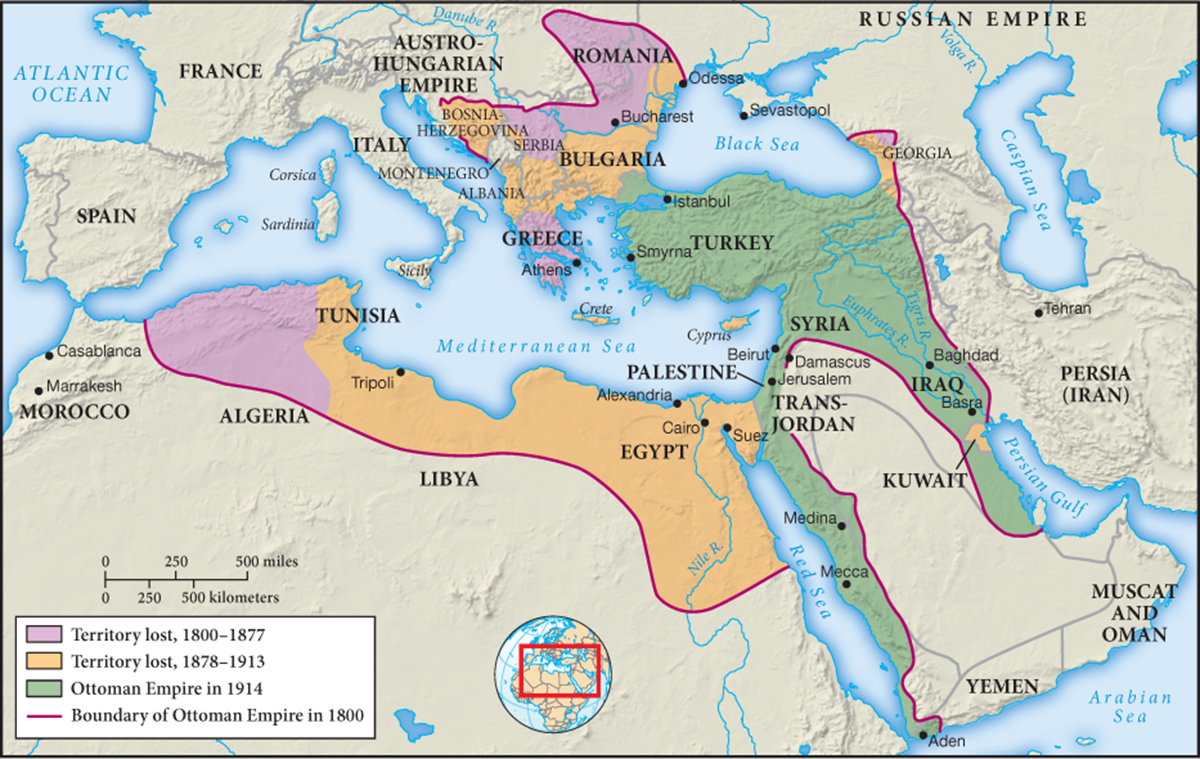“The Sick Man of Europe”
In 1750, the Ottoman Empire was still the central political fixture of a widespread Islamic world. From its Turkish heartland in Anatolia, it ruled over much of the Arab world, from which Islam had come. It protected pilgrims on their way to Mecca, governed Egypt and coastal North Africa, and incorporated millions of Christians in the Balkans. Its ruler, the sultan, claimed the role of caliph, successor to the Prophet Muhammad, and was widely viewed as the leader, defender, and primary representative of the Islamic world. But by the middle, and certainly by the end, of the nineteenth century, the Ottoman Empire was no longer able to deal with Europe from a position of equality, let alone superiority. Among the Great Powers of the West, it was now known as “the sick man of Europe.” Within the Muslim world, the Ottoman Empire, once viewed as “the strong sword of Islam,” was unable to prevent region after region—
The Ottoman Empire’s own domains shrank considerably at the hands of Russian, British, Austrian, and French aggression (see Map 19.2). In 1798, Napoleon’s invasion of Egypt, which had long been a province of the Ottoman Empire, was a particularly stunning blow. A contemporary observer, Abd al-

The French entered the city like a torrent rushing through the alleys and streets without anything to stop them, like demons of the Devil’s army…. And the French trod in the Mosque of al-
When the French left, a virtually independent Egypt pursued a modernizing and empire-
Change
What lay behind the decline of the Ottoman Empire in the nineteenth century?
Beyond territorial losses to stronger European powers, other parts of the empire, such as Greece, Serbia, Bulgaria, and Romania, achieved independence based on their own surging nationalism and support from the British or the Russians. The continued independence of the core region of the Ottoman Empire owed much to the inability of Europe’s Great Powers to agree on how to divide it up among themselves.
Behind the contraction of the Ottoman Empire lay other problems. As in China, the central Ottoman state had weakened, particularly in its ability to raise necessary revenue, as provincial authorities and local warlords gained greater power. Moreover, the Janissaries, once the effective and innovative elite infantry units of Ottoman military forces, lost their military edge, becoming a highly conservative force within the empire. The technological and military gap with the West was clearly growing.
Economically, the earlier centrality of the Ottoman and Arab lands in Afro-